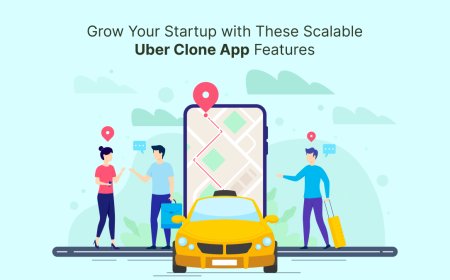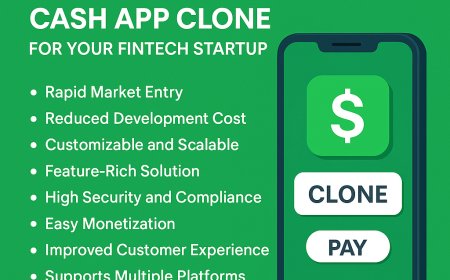AI Transformation in Healthcare: From Diagnosis to Deployment
Book a strategy consultation with our AI healthcare experts and see how Generative AI Consulting and innovation-led implementation can transform the way you deliver care — faster, smarter, and more human.

From Generative AI Consulting projects powering early diagnosis to intelligent automation in patient care, AI is radically reshaping healthcare delivery in 2025.
Gone are the days when artificial intelligence in healthcare meant just experimental tools or futuristic ideas. Today, AI transformation is happening on the ground in hospitals, clinics, insurance platforms, and research labs across the globe. This shift is about more than just technology; its about smarter systems, better decisions, and ultimately, better outcomes for patients.
In the USA, where the healthcare system is both advanced and under pressure, the demand for scalable, intelligent solutions has never been higher. Lets explore how AI is driving real impact from diagnosis to deployment.
Diagnosing Smarter, Faster, and Earlier
Early detection can be the difference between life and death. AI-powered diagnostic tools are making it faster, more accurate, and more accessible.
Key Use Cases:
-
Radiology: AI algorithms now outperform humans in identifying anomalies in X-rays, CT scans, and MRIs spotting early signs of cancer, strokes, and fractures.
-
Pathology: Digital pathology, powered by machine learning, automates the analysis of tissue samples, helping detect disease with greater consistency.
-
Primary Care: Chat-based AI assistants can triage symptoms, suggest next steps, and route patients more efficiently.
These tools arent replacing doctors theyre amplifying their ability to diagnose with speed and precision. Thats especially critical in rural and underserved areas, where specialist access is limited.
Treatment Personalization Through Predictive AI
Once a diagnosis is made, AI helps personalize treatment plans based on a patients unique health history, genetics, and risk factors. This is a massive leap forward from traditional one-size-fits-all medicine.
Examples:
-
Oncology: AI matches patients with the most effective cancer therapies based on tumor genomics.
-
Chronic Disease: Predictive models help manage diabetes, heart disease, and hypertension by analyzing lifestyle and clinical data.
-
Mental Health: AI-driven platforms provide early intervention signals and tailor therapy pathways using sentiment analysis.
This isnt just innovation for innovations sake its the foundation of Innovation Consulting strategies that help providers and healthtech companies design better care systems.
Generative AI Consulting for Clinical Documentation
Administrative burnout is a real problem. Doctors spend hours each day on charting and paperwork. This is where Generative AI Consulting is making a meaningful difference.
By deploying large language models (LLMs), healthcare providers can:
-
Auto-generate clinical notes from voice recordings
-
Summarize patient histories
-
Translate complex medical records into patient-friendly language
-
Draft prior authorization requests and referral letters
Not only does this improve accuracy and reduce workload, but it also frees clinicians to focus more on care and less on clerical work, improving both experience and efficiency.
AI in Operational and Supply Chain Management
Healthcare is a business, too and AI is transforming how systems run behind the scenes.
AI Applications in Healthcare Operations:
-
Staff Scheduling: Forecasting patient loads and optimizing shift coverage.
-
Inventory Optimization: Predicting demand for medical supplies and minimizing waste.
-
Billing & Claims: Automating coding, detecting fraud, and streamlining payment cycles.
These use cases are at the heart of AI transformation in healthcare, especially as systems look to reduce operational costs while improving the quality of service.
Deployment at Scale: From Pilot Projects to Integrated Platforms
While early AI applications in healthcare were often limited to pilots or narrow use cases, 2025 marks a turning point. Hospitals and systems are now deploying enterprise-level AI solutions that span departments, integrate with EHRs, and support entire workflows.
Critical Success Factors:
-
Data Infrastructure: Clean, structured data is the fuel for effective AI. Organizations investing in data lakes, interoperability, and compliance frameworks see the best ROI.
-
Change Management: Getting clinicians and staff on board is crucial. Innovation Consulting firms often lead this process, aligning technology rollouts with cultural readiness.
-
Ethical Oversight: Bias, transparency, and accountability are non-negotiable. AI in healthcare must meet strict regulatory and ethical standards.
These arent tech projects theyre business transformations, and they require a clear roadmap to avoid fragmentation and waste.
Why Generative AI Consulting Matters Right Now
The role of Generative AI Consulting is becoming mission-critical as healthcare leaders look to integrate creative, language-based AI models into everything from clinical workflows to patient engagement.
Consulting firms specializing in this domain help:
-
Identify use cases with immediate ROI
-
Navigate HIPAA and data privacy concerns
-
Build custom GPT or LLM models tailored to medical contexts
-
Train internal teams on prompt engineering and AI integration
-
Ensure scalable and ethical AI implementation
As generative AI continues to evolve rapidly, these consulting partnerships ensure healthcare systems stay ahead of the curve, rather than playing catch-up.
The Role of the USA in Global AI Healthcare Leadership
The USA is at the forefront of healthcare innovation, home to leading academic hospitals, tech startups, and regulatory frameworks that are shaping how AI is used responsibly.
Key developments include:
-
FDA approvals for AI-powered medical devices
-
National initiatives to standardize healthcare data for AI
-
Growing investment in AI healthtech by venture capital and public funding
Global providers often look to U.S. health systems as benchmarks for scaling digital health transformation, and the adoption of AI is central to that leadership.
Final Thoughts: From Hype to Healing
AI in healthcare is no longer experimental. Its functional, impactful, and when implemented strategically transformative.
From diagnostics to documentation, from operations to personalization, AI transformation is improving both care quality and organizational resilience. With the right support including strong data infrastructure and trusted partners in Innovation Consulting and Generative AI Consulting healthcare providers can go from pilots to platforms that truly scale.


























